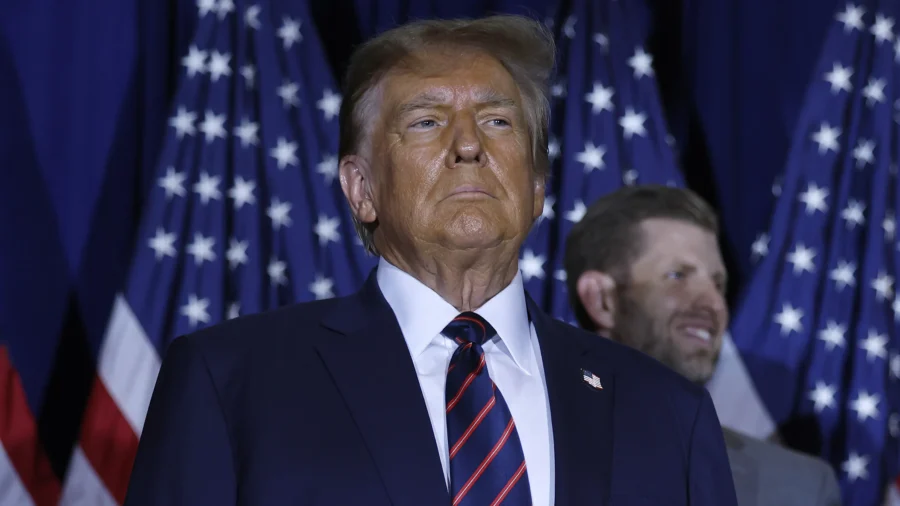Maine’s Supreme Court on Wednesday rejected an appeal by the state’s top election official to review her decision to ban former President Trump from Maine’s presidential primary ballot.
The state’s high court rejected the appeal by Secretary of State Shenna Bellows and has sent the case back to Maine Superior Court for further action, pending a similar case in Colorado under review by the U.S. Supreme Court.
The justices said in their written decision that they adhere to a final judgment rule that “requires a trial court’s decision to be final before we consider an appeal.”
“Because the appeal is not from a final judgment, we dismiss the appeal as interlocutory and not justiciable,” the justices wrote in their decision (pdf).
The final judgment rule saves appellate courts from deciding on issues that may ultimately be rendered moot.
The justices added that they “would run a high risk of issuing an advisory opinion if we decided the matter on the merits before a final judgment has been entered.”
On Jan. 17, the Maine Superior Court ruled that the U.S. Supreme Court’s decision in the Colorado case could make the final decision on President Trump’s eligibility to hold office. Whether Ms. Bellow can proceed with removing President Trump from the state’s presidential primary ballot will have to wait for that ruling.
Ms. Bellows appealed the Superior Court decision two days later.
She was given until Tuesday to file a memo on why her appeal should not be “dismissed as interlocutory” to the case before the Supreme Court.
However, come Wednesday, the justices were not persuaded by her appeal. They have therefore declined to weigh in on it.
Maine Attorney General Aaron Frey had argued that the impending deadlines to finalize the state primary ballot required a quick decision from the court. However, the justices mentioned that they were not convinced by this argument to immediately review the case.
Additionally, they dismissed an argument stating that adhering to the Superior Court’s order might cause confusion among voters during the primary.
“Indeed, there is at least as great a risk of additional process and delay if we consider this appeal and reach an ostensibly final decision, and then the Supreme Court’s decision makes additional court or administrative action necessary to comply with the federal law it announces with no clear path for resolution,” the decision reads.
Furthermore, they noted that their decision may not be the final word on the case.
“Our decision to dismiss the appeal as interlocutory within that period may not be the final word in the matter, but it decides the case as it has been presented to us.”
Ms. Bellows stayed her removal of President Trump from the ballot pending a higher court decision. If the Supreme Court fails to settle the issue before Maine’s primary on March 5, she plans to lift the stay, which would result in President Trump being removed from the ballot. This would occur after early voting ballots have already been sent out.
There have been challenges made to President Trump’s eligibility as a candidate under Section 3 of the 14th Amendment in 30 states across the country. While most state secretaries have declined to take an official position on the candidate’s eligibility for a presidential primary, Ms. Bellows argued that Maine law compels her to do so, even if it means adjudicating issues of “insurrection.”
She argued, in a court filing opposing President Trump’s appeal of her decision, that he “knowingly incited an attack on the Capitol to prevent the peaceful transfer of power.”
This, she wrote, permits her to conclude “that Mr. Trump engaged in insurrection and is accordingly not qualified for the office of the President by operation of Section Three of the Fourteenth Amendment.”
Lawyers for the former president have argued that Ms. Bellows lacked authority to rule on his eligibility.
President Trump had also requested Ms. Bellows recuse herself before she issued her decision, citing social media posts in which she supported efforts toward his impeachment and called the Jan. 6, 2021, breach at the U.S. Capitol an “insurrection.”
Catherine Yang contributed to this report.
From The Epoch Times


